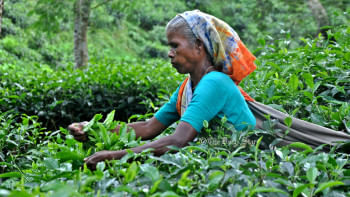Notable Supreme Court Pronouncements of 2020

This write-up compiles notable pronouncements of the Appellate Division (AD) and the High Court Division (HCD) of the Supreme Court (SC) of Bangladesh from 2020.
Interpreting the tenure of life sentence
In Criminal Review Petition 82/2017, the AD harmoniously interpreted sections 45, 53, 55 and 57 of the Penal Code (PC), 1860 and section 35A of the Code of Criminal Procedure, 1898 to decide that life imprisonment amounts to rigorous imprisonment for 30 years, not the whole of the convict's natural life, as laid down in the appeal verdict. It further held that while awarding sentences, if a court or tribunal, or the International Crimes Tribunal constituted under the International Crimes Tribunal Act, 1973, orders for the accused to be sentenced to imprisonment till their natural death, they will not be entitled to any remission of their sentence.
Extending the limitation period to file cases
In Md. Fazlul Haque Sarder v Grameen Phone Limited, the Attorney General (AG) informed the AD of the sufferings the COVID-19 pandemic brought to litigants since they were unable to come to courts to file their cases. He submitted the precedent of the Indian SC lifting the limitation periods for all kinds of proceedings, including those particularly stipulated in the special laws till further notice (Suo Motu Writ (Civil) 3/2020) and asked for a similar safeguard measure. Terming the pandemic as an act of God, the AD extended the limitation period 'for filing petitions/applications/suits/appeals/revisions/all other proceedings in civil, criminal or administrative matters under the general or special laws which expired on or after [March 26, 2020 till May 31, 2020].'
Ordering compensation for wrongful imprisonment
Due to having similarity with the father's name of one Shahabuddin, a convict in a narcotics case, one Md. Arman was wrongfully imprisoned by police for four years. Afterward, Law and Life Foundation filed a habeas corpus writ (Writ Petition No. 7297/2019) asking for his release. Upon hearing, the HCD in December asked the jail authorities to release Arman immediately and directed the Inspector General of Police to pay him BDT 20 lacs as compensation within 30 days.
Issuing a contempt of court rule against the Health Secretary and the Director-General (DG) of the Directorate General of Health Services (DGHS)
In 2016, Bangladesh Legal Aid and Services Trust (BLAST) filed a writ petition asking to ensure emergency medical treatment for road accident victims and legal protection for those offering assistance to such injured victims. The HCD then asked the respondents to circulate guidelines on these issues to the hospitals via gazette notification. As they failed to comply with this order for over two years, the HCD issued a contempt of court rule against the Health Secretary and the DG of DGHS in the Contempt Petition (H) 209/2020 asking why it should not take action against them for their failure.
Directing to protect dolphins in Halda River
Barrister Md. Abdul Qaium filed the first-ever writ petition in virtual court seeking the HCD's directives after newspapers reported the killing of 24 dolphins in the Halda River. The HCD directed the Deputy Commissioner of Chattogram to form a committee to prevent the killing of dolphins and mother fishes and to protect the biodiversity of the river. Meanwhile, another dolphin was killed, raising the death toll to 25. Hence, during the next hearing, the HCD asked the committee to submit a report on the measures they had taken to stop such killings. It also asked the committee to share details of the dolphin that was killed during the pendency of the writ.
Establishing Hindu woman's right to husband's agricultural lands
In a Civil Revision Petition, the HCD held that our courts, till now, had been erroneously interpreting the Hindu Women's Rights to Property Act, 1937 in the light of a 1941 Indian Federal Court judgment, even after our independence in 1971. It clarified this interpretative error and ruled that the terms 'any property' in section 3 of the 1937 Act includes both non-agricultural and agricultural lands. Hence, it established the right of Hindu widows over both non-agricultural and agricultural lands of their deceased husbands.
Releasing four children arrested for rape on bail
On 8 October, Somoy TV reported that after the police arrested four children aged 10–11 years for raping a girl aged 6 years and produced them before the concerned Senior Judicial Magistrate (SJM), the SJM rejected their bail petition and sent them to the Jashore Juvenile Detention Centre. Thereafter, an HCD bench sat on that very night and ordered the Nari O Shishu Nirjatan Daman Tribunal, Barishal, to release the children instantly on bail and hand them over to their parents in the Suo Motu Rule 16/2020. The tribunal complied with the order immediately after receiving it via email.
Establishing jurisprudence for cheque dishonour cases
In Md. Abul Kaher Shahin v Emran Rashid, the AD held that if the conditions under an agreement for which a drawer issued a cheque are not fulfilled or if there is no consideration for providing a cheque; it creates no liability upon the drawer of the cheque under section 43 of the Negotiable Instruments (NI) Act, 1881. Owing to the amendment to section 138 in 2000, a payee did not have to prove that a drawer owed him money or that a drawer drew the cheque in the payee's favour to pay for any debt or liability. However, after this verdict, a payee has to prove that the consideration under section 43 still exists and has not yet failed, and that he fulfilled the terms and conditions of the agreement under which a drawer has issued the cheque.
The writer is the Bangladesh Junior Legal Analyst of iProbono.

 For all latest news, follow The Daily Star's Google News channel.
For all latest news, follow The Daily Star's Google News channel. 



Comments